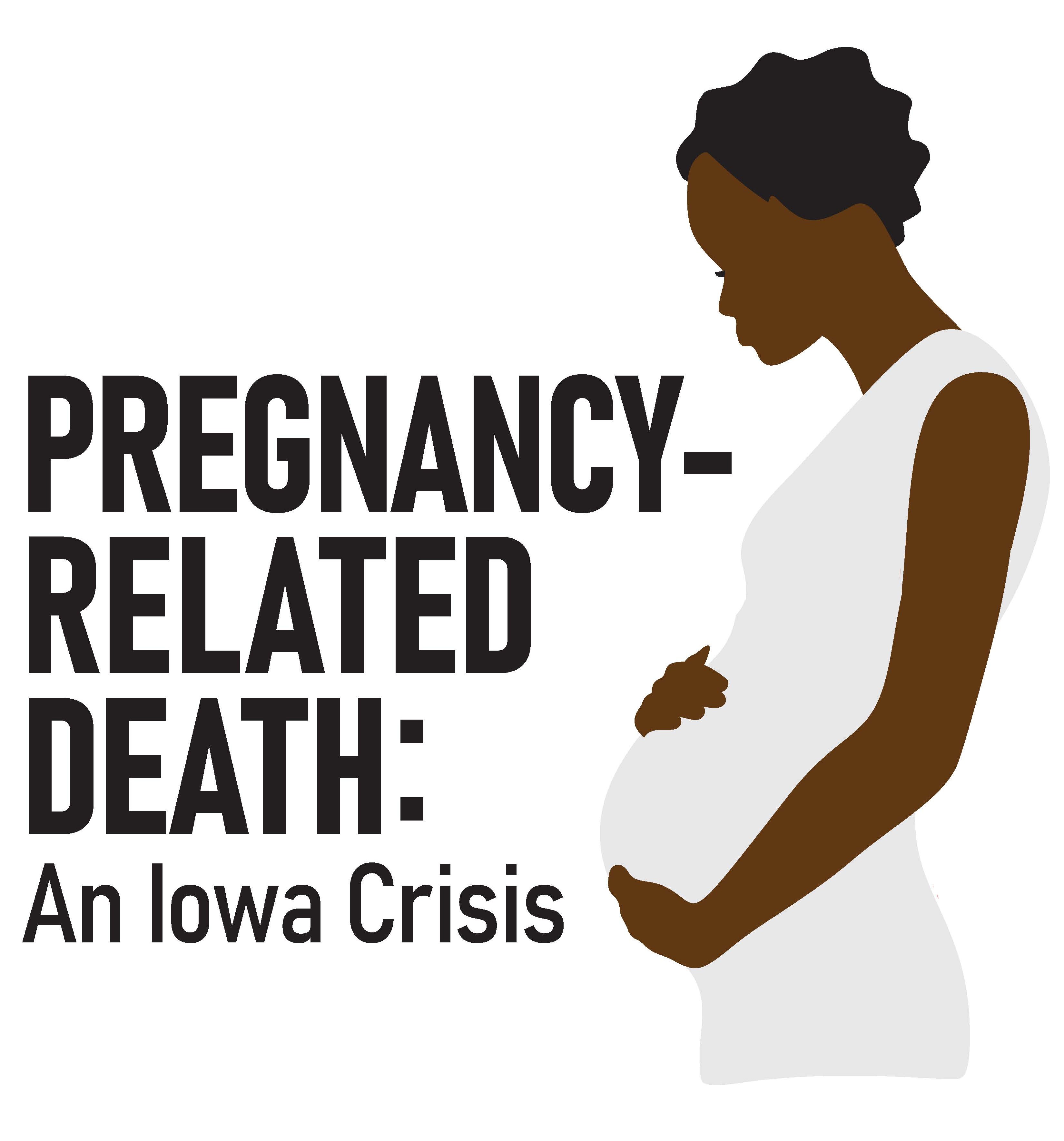June 18, 2025
Iowa's Black Maternal Mortality Crisis

There is a crisis in the United States when it comes to maternal mortality – and Iowa is not immune to the problem. According to a 2020 report (the most recent data available), 19.5 women die either during pregnancy or within the first year after giving birth per 100,000 total births. That places Iowa just slightly below average in the nation.
It is a problem that is getting worse. In the last 20 years in the United States the rate has nearly doubled, from 12 deaths per 100,000 births to 21 deaths per 100,000 births in the most recent survey in 2020.
Nations with lower maternal mortalities rates include Egypt, Saudi Arabia, Russia, the United Kingdom, South Korea, Italy, Australia, Spain and Iceland.
While the overall numbers in the US are scary enough, the problem is much worse for women of color. Black women are more than 3x more likely to die during pregnancy or within a year of giving birth in the US. In Iowa the problem is even more dire. Black women in Iowa are 6x more likely to die while pregnant or within a year of giving birth.
EveryStep, as part of the Polk County Community Action Network, is at the forefront of the work to reduce these numbers and address the issues that are costing women their lives.
“We need to do a better job of taking care of our women – period,” says EveryStep’s Healthy Start Manager Lanette Nelson, “If we take care of black women, it's going to trickle down to everyone.”
Lanette is a leading voice and driving force behind EveryStep’s maternal mortality education campaign as part of the Health Start program. The campaign’s flyers begin with four simple words that lay out the path to saving women’s lives: Listen, Hear, Advocate, Empower.
The campaign defines a preventable maternal death as a life that could have been saved if “either there is a GOOD CHANCE or SOME CHANCE the death can be avoided with one or more reasonable changes to patient, family, provider, facility, system or community factors.”
Lanette says the discrepancies between outcomes for women of different races in Iowa often boils down to cultural divides not being overcome – and statistics prove it. “There’s enough information out there to support it,” says Lanette, “A lot of it boils down to inherent bias ... differences in treatment that black patients get compared to white patients” as well as “the structure within the health system.”
Whether it is healthcare providers not understanding how to speak to black women, or the women themselves not speaking up for themselves out of fear or misunderstanding – the lack of communication and trust can cost lives. That’s where a doula, like those contracted through EveryStep, can be so important for both patient and provider.
Doulas offer personalized, in-home care for pregnant women. They offer the kind of safe, caring, one-on-one attention that women uncomfortable with the American health care system need. Doulas have at times been unfairly labeled as interfering in the birth journey between mom and doctor. That’s not the case at all.
“Doulas can be advocates in the birthing room,” she says, “They aren’t there to be combative. They collaborate with medical team.”
The work to lower the maternal mortality birthrate in Iowa and across the country begins with mothers themselves who need to better understand the warning signs of a problematic pregnancy. Those warning signs include:
- Extreme swelling of your hands or face
- Headache that won’t go away or gets worse over time
- Fever of 100.4˚F or higher
- Dizziness or fainting
- Changes in your vision
- Severe swelling, redness or pain of your leg or arm
|
- Severe nausea and throwing up
- Severe belly pain that doesn’t go away
- Baby’s movement stopping or slowing during pregnancy
- Overwhelming tiredness
- Vaginal bleeding or fluid leaking during pregnancy
- Heavy vaginal bleeding or discharge after pregnancy
|
If a woman is experiencing any of these symptoms during pregancy, she should reach out to her health care provider or go to the ER. They could each be a symptom of one of the leading causes of maternal mortality.
Those causes include:
- Pre-Eclampsia
- Hemorrhage
- Heart Problems
- Pneumonia
- Pulmonary Embolism
- Drug Overdose
- Infection
The Centers for Disease Control has its own educational campaign as well for pregnant women. The ‘Hear Her’ campaign provides much of the same educational material as the Polk County CAN efforts.
No matter where or how the information reaches women, Lanette says everyone across the state of Iowa and the country should have the same mission as her.
“We want healthy pregnancies; we want healthy babies.”
